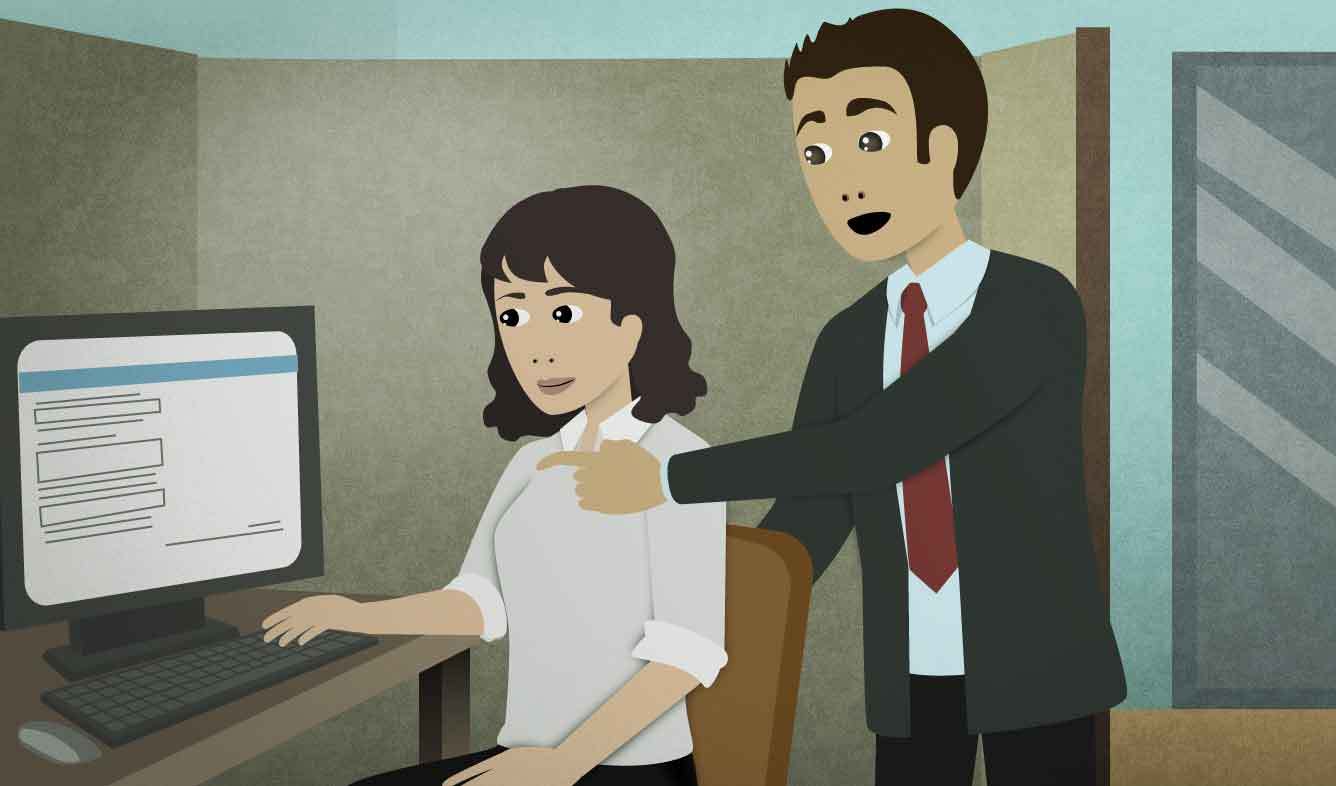“Fill in the company name, the name of your contact, their email address, and so on.”
You're training a coworker in how to use an computer system that she needs for her job. You show her how to enter some information into a form.
Fill in the company name, the name of your contact, their email address, and so on.
Want Video and Sound? Follow us on YouTube

...and so on
"...and so on" is similar in meaning to "etc." ("et cetera"). It means that there are more things that you could add to a list, but you're not going to say all of them.
In this example:
Heavy drinking can lead to liver damage and so on.
... the speaker means that drinking can lead to liver damage as well as other health problems.
"...and so on" is more casual than "etc." or "et cetera". It's better for spoken English.
fill in (parts of a form)
When you write answers in a form, you are "filling out" the form. But you're "filling in" the individual answers:
Please fill out this application.
Please fill in your name and social security number.
(someone's) contact
A "contact" is someone in an organization whom you are able to speak with. Your contact can answer questions about the organization, or pass information on to other people in that organization.
For example, if your company uses software that's made by another company, you might have a "contact" at the company that made the software. The contact might be one of their salespeople, or one of the engineers who built the software.
We talk about "having" a contact:
Do you have any contacts at any local newspapers or blogs that you can ask about publicizing the event?
Contacts "belong" to someone:
I'll ask my contact in the sales department.
their (something)
In casual English, you can use "they" and "their" to talk about a person without mentioning whether the person is male or female:
A: I have a friend who studies dance at the same studio.
B: Oh, what's their name?
In formal English, it's necessary to say "he" or "she" and "his" or "her":
If you'd like to contact one of the artists, please write your email address next to his or her name.
company name
In this example, the speaker says "company name" instead of "company's name". You can use both.
email address
A person's "email address" is what you type in the "To:" field when sending someone an email. For example, the email address for PhraseMix support is "support@phrasemix.com".
You can also call someone's email address their "email" in casual speech:
Hey, what's your email?
But this can be confusing sometimes since your "email" can also mean:
- your email inbox
- an email message
So use "email address" if you want to be really clear what you mean.
